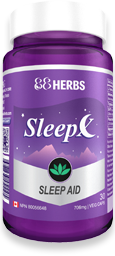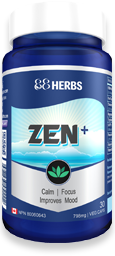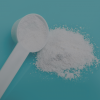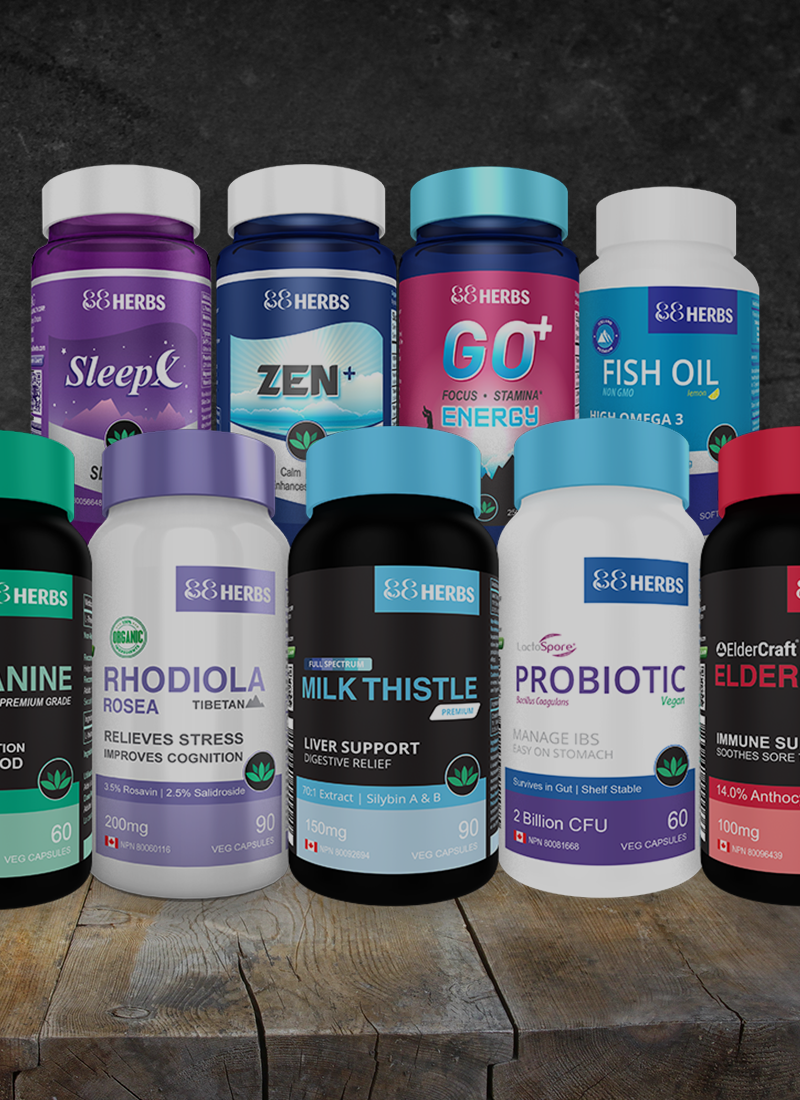Ashwagandha


Ashwagandha Overview
Ashwagandha, also known as Withania Somnifera or Indian Ginseng, is a powerful adaptogen traditionally used in Indian Ayurvedic medicine and traditional Chinese medicine. It’s been used for thousands of years as a “wonder herb” known to treat an extremely wide variety of ailments. The best Indian and Chinese doctors of thousands of years ago knew very well of the benefits of ashwagandha, but the herb and other adaptogens have only really been studied scientifically in the west since the 1940′s.
International scientists were very curious as to why people in Siberia lived such long and healthy lives with very little stress. Thousands of studies on over half a million people were conducted on Ashwagandha. It proved to boost energy when needed, calm nerves when a person was experiencing feelings of anxiety, improve mood, sexual vitality, and a lot more (See below).
Ashwagandha’s popularity in the west has been accelerating during the last few decades, and particularly during the past couple of years. Well-respected international scientists have been performing hundreds of double blind studies on ashwagandha in the past few years alone, finally proving the true benefits of ashwagandha in the scientific community.
A lot more research is currently underway and the results look extremely promising. The quality of the world’s best ashwagandha is also getting far better, as organic growing, and better cultivation and extraction processes have improved tremendously. See below for more info on choosing superior quality ashwagandha. ***We will keep this page updated as new results come in.
What is an adaptogen?
Ashwagandha is an extremely powerful and versatile adaptogen. In a nutshell, an adaptogen is a class of herbs which work holistically on the entire body to bring it back to homeostasis and help it function efficiently. An adaptogen must also possess several properties: It must be completely non-toxic, be non-specific in its action – meaning that it acts on the whole body rather than on a specific organ or location, and help restore homeostasis.
It can provide energy to a person feeling sluggish. It can have a calming effect on a person’s nerves when they are tense and anxious. It can help someone sleep at night if they are in need of a good sleep. It can help someone with a foggy mind focus more clearly and concentrate.
The body is designed to function very well, much better than most of us today experience, and Ashwagandha helps to restore the body and bring it back to its healthiest state.
Adaptogens have been important for thousands of years, but they are probably more important now than ever as humans are so out-of-whack in today’s stressful modern society. We don’t sleep enough, we’re too stressed, we eat too much sugar, we multi-task, we consume far too many toxins… Cancer rates are through the roof as are a myriad of degenerative genetic disorders. In many ways, we’re far worse off than our ancient ancestors in terms of our hormone levels and balance. Adaptogens, specifically ashwagandha, can help us attain the health and vitality we are capable of.
How does Ashwagandha work?
Ashwagandha’s mechanisms of action are difficult to explain in western scientific terms because the plant contains so many active ingredients and works on so many natural systems simultaneously. The generally sited active ingredients in ashwagandha are a class of compounds called “withanolides”. These include withaferins, alkaloids, saponins, and steroidal lactones among many more. These active ingredients are mainly concentrated in the “root”.
Ashwagandha helps to regulate neurotransmitters like serotonin, dopamine, and GABA. It is a wonderful herb to take both on its own and in combination with other herbs to get a “multiplier effect”. It is also incredibly non-toxic. Of course, it’s always wise to check with a health care practitioner when mixing with medications or combining herbs.
One major mechanism of action for ashwagandha is in its ability to decrease stress levels by substantially reducing levels of the body’s stress hormone, cortisol.
It’s also important to note that the type of ashwagandha you use matters greatly. Ashwagandha is the name of a plant, but the supplements on the market are not simply the same plant dried, ground up, and put in capsules. There are different species of ashwagandha – some much better than others. The climate of growth matters a lot, whether or not it is organically grown, the extraction procedure, and the concentration, type, and quality of the active ingredients.
It also is of great concern what type of capsules the herb is placed in, what non-medicinal ingredients are included, and how fresh the brand has attained the herb.
We’ve done exhaustive research on the best quality organic ashwagandha, and we’ve done the best possible job at sourcing, storing, and encapsulating it in its purest and most potent form.
KSM-66 Ashwagandha – Why is it the best
The quality of the ashwagandha you use is unbelievably important. Please don’t make the mistake of buying an ashwagandha supplement with only the knowledge that you need “ashwagandha”. This would be akin to trying to buy good red wine or vodka in a restaurant or bar and only knowing the words “red wine” and “vodka”, and then just assuming that the qualities are all the same. They are not, and the differences with ashwagandha are even greater.
We’ve researched everything on ashwagandha. Here is what needs to be considered in a quality supplement:
- The species of ashwagandha
- The climate it is grown in
- Ensuring it’s certified organic and non-GMO
- The extraction methods (harsh chemicals or water based)
- The % of withanolides or active ingredients
- Where the withanolides are extracted (root, leaves, stem)?
- The type of withanolides (they aren’t all the same)
- Ensuring it is “full spectrum”
- The double blind scientific research on the specific ashwagandha
- The encapsulation procedure and the type of capsules used
- The freshness and maintenance of the dried herb
- Ensuring no magnesium stearate is used or other toxic non medicinal ingredients
The one type of ashwagandha which passes all of these tests and has a huge body of scientific research behind it is the award winning KSM-66 ashwagandha. We have no reason to be affiliated with this type of ashwagandha, other than the fact that we’ve found it to be the best through our own independent research. Learn more about KSM-66 and how we use the herb here.
What are the benefits of Ashwagandha?
Ashwagandha has some of the most impressive and the widest range of health benefits of any herb we’ve ever come across. Here we’ll list all of the scientifically studied health benefits of ashwagandha and include a few basic details. Follow the links for even more specific details. A lot of these studies are on the benefits of KSM-66 ashwagandha specifically.
Anti-Stress
One of the most important benefits of ashwagandha lies in its stress reducing properties. And the “stress” ashwagandha helps to reduce is all types of stress – physical, mental, emotional, from the environment, etc.
Ashwagandha significantly reduces the blood levels of cortisol, the body’s main stress hormone. Cortisol is released when a person encounters any type of stress – a punch in the face, a long workout, an argument with a spouse, an illness, an upcoming exam, a lack of sleep… Any type of stress. Cortisol does indeed have its function and purpose, but people’s stress responses are far too high in general and we need to lower them dramatically. We aren’t getting chased around by tigers all day now, but our hormones still act as if we are!
By blocking cortisol, ashwagandha allows us to handle stress much more easily, recover faster from it, and live healthier and with more vitality. These stress reducing/cortisol blocking effects also help with all of the conditions below.
Anti-Anxiety
Ashwagandha is quickly becoming well-known as one of the best natural supplements for reducing anxiety. There have been impressive double blind tests showing ashwagandha works at least as well as well-known anti-anxiety pharmaceutical medications, and without the side-effects.
This is a direct quote from Wikipedia –
Ashwagandha has been demonstrated to be as effective as some tranquilizers and antidepressant drugs. Specifically, oral administration of Ashwagandha for five days suggested anxiety-relieving effects similar to those achieved by the anti-anxiety drug lorazepam (Ativan®), and antidepressant effects similar to those of the prescription antidepressant drug imipramine (Tofranil®)
KSM-66 ashwagandha has the most impressive scientific research showing ashwagandha’s ability to reduce anxiety by not only reducing blood cortisol levels by almost 28%, but also by subjects passing every measurable test on anxiety.
Aphrodisiac – Sexual Enhancer in both men and women – libido and performance
Ashwagandha has a several thousand year history as a powerful aphrodisiac in both Indian ayurvedic medicine and traditional Chinese medicine. The current scientific research on the topic shows clearly that ashwagandha is great for both men and women to take in order to boost sexual function in a variety of ways.
As an adaptogen, ashwagandha works equally well, but differently, in both men and women.
In men, ashwagandha has been scientifically proven to increase testosterone levels significantly. It also increases sexual arousal, libido, stamina, and both semen quantity and quality. It also helps by reducing anxiety, which indirectly helps libido and interest in sex. There is evidence that it helps with the problem of premature ejaculation.
In women, ashwagandha increases libido, lubrication, sexual satisfaction, and orgasm quality and quantity. The anti-anxiety effects of ashwagandha help put women “in the mood” more often as well. This has an extra indirect effect on all of the above benefits for ashwagandha and women.
Anti-Inflammatory
Ashwagandha decreases inflammation. There are many scientific studies all backing this claim. The mechanisms for decreasing inflammation as far as ashwagandha supplementation is concerned are not totally understood yet, but the cortisol reducing properties may be largely responsible. Cortisol, when released in small and “normal” levels, is actually a good thing. It can help to reduce inflammation and prime the body to deal with the major stressors that life throws at us. But our cortisol levels are often way too high in the modern world. We need to reduce them and bring them to a balanced state for optimal health.
Inflammation is becoming ever-more known for causing all kinds of diseases from cancer to arthritis to migraines. Many experts believe that high inflammation is at the major root of all chronic health conditions. Lowering inflammation is key to a long and healthy life.
Anti-Cancer
There is very promising research showing ashwagandha’s anti-cancer properties. The anti-cancer properties work via many different mechanisms and in different ways. With something like cancer, its very difficult to study “scientifically” since it’s practically impossible to have a control group and an experimental group. So we need to view this problem through lab and animal studies rather than double blind human studies. Regardless, the results are promising and interesting.
Several animal and laboratory studies have shown that certain active ingredients in ashwagandha slow the growth of many different cancer cells.
Withaferin A is one particular withanaloid in ashwagandha extract which has the strongest anti-cancer properties, but at least 10 different compounds in ashwagandha have been shown to be beneficial in various ways with regards to cancer.
The compounds in ashwagandha extract work on various mechanisms as a powerful anti-cancer agent.
It is a powerful anti-oxidant, which protects normal cells from becoming cancerous. It helps make chemotherapy drugs work more effectively. It specifically can target and kill certain cancer cells while leaving normal cells intact. It stops or significantly reduces angiogenesis, which is the creation of new blood vessels that help aide the growth and spread of cancer cells.
Drug Withdrawal
Ashwagandha can be beneficial for severe and acute opiate withdrawal. This includes people looking to stop dependence on heroin, morphine, oxycontin, codeine, vicodin, Percocet… Ashwagandha can aide with the protection and regeneration of neurons as well as prevent the loss of dopaminergic activity generally associated with opiate withdrawal.
Ashwagandha has also been shown to act as a strong anxiolytic (anti-anxiety) drug such as the benzodiazepines Valium and Xanax. It could potentially help patients gradually reduce their dosages and ultimately dependence on these benzos.
Check with your doctor before experimenting or starting your own drug withdrawal programs to ensure safety.
Sleep aid
Ashwagandha has been shown to be a very powerful and effective natural sleep aid. People worldwide have used it successfully for this purpose for thousands of years. Being a powerful adaptogen, ashwagandha won’t put a well-rested person right to sleep when taken during the day, but it will help a person who needs a good night’s sleep to actually fall asleep and stay asleep. So it’s much different than a typical “sleeping pill” in this sense, and for the right people, it’s a lot better too.
Many people with various severities of insomnia love using ashwagandha to help with their sleep duration and quality.
Ashwagandha works to reduce anxiety as well as the stress hormone cortisol. These 2 functions help people in need of a good rest attain deep and restful sleep.
Energy Booster
In addition to helping as a powerful sleep aid, ashwagandha can also be a great energy booster. It may sound counter-intuitive for the same herb to be both a sleep aid and an energy booster, but a true understand of how ashwagandha works as an adaptogen helps to clear this up.
Remember, ashwagandha works on the whole body via many mechanisms. It helps restore the body to its natural peak state of homeostasis. It’s totally “normal” for a person to be very energetic during the day and exhausted and ready for sleep at night. This is what we want and this is what is healthy. By restoring our hormones and neurotransmitters to their proper levels, ashwagandha can give us a huge lift in mood and energy when we need it, such as when we wake up sluggish and foggy headed.
Helps reduce risk of diabetes
Type 2 diabetes and pre-diabetes are both conditions which affect tens of millions of people in the developed world – the developing world is now unfortunately catching up as well.
Pre-diabetes, type 2, or adult onset diabetes all have to do with insulin sensitivity. Our modern diets are horrible in general. We eat way too much sugar, and our pancreas needs to produce more and more insulin to deal with the sugar. Over time, our body has a harder time producing insulin, and the insulin we do produce is much less effective because we “wear out” the insulin receptors.
Ashwagandha can help both decrease fasting blood sugar levels and increase insulin sensitivity. Increased insulin sensitivity means that our body responds better to the same amount of insulin – we want this. We also want decreased fasting blood sugar levels as well so that we don’t need to dump so much insulin into the bloodstream.
And not only does ashwagandha seem to be a promising herb for preventing diabetes or reversing pre-diabetes, but it also looks as though it can help naturally reduce the symptoms of a patient who already has full blown diabetes – including decrease the heart problems and risks associated with the disease.
Heart Health
Like with cancer, heart disease is difficult to study scientifically with a traditional “double blind” type of study. But the current research on ashwagandha and heart health looks very promising.
Heart disease is very complex and there are a lot of factors at play. Ashwagandha significantly reduces blood levels of cortisol, the body’s stress hormone. High levels of cortisol are positively correlated with heart disease and heart attacks, so lowering cortisol alone can help significantly reduce the risks of heart disease.
Ashwagandha also decreases anxiety and stress – lower levels of anxiety and stress are very good for the heart. In animal studies ashwagandha has been shown to reduce triglyceride levels as well as high cholesterol in general. It has also been shown to reduce blood pressure when compared to a placebo as well.
The anti-inflammatory and anti oxidant properties of ashwagandha may help a post heart attack patient to recover more quickly while suffering less long term damage.
Improving Immune System
Ashwagandha, particularly KSM-66, has been shown to be effective in improving the immune system. The immune system is very complex. Part of the reason ashwagandha helps with immune function has to do with the adaptogenic property of the herb. Ashwagandha helps us lower cortisol and maintain a well-rested homeostasis. When our hormones are balanced, our immune system is strong.
Ashwagandha may help us recover faster from a common cold or help to prevent one. Ashwagandha has also shown promising results for reducing the length of genital and oral herpes as well – the herpes virus attacks us the hardest when we have a weakened immune system.
Testosterone Booster in males
One of the most impressive effects of ashwagandha (particularly KSM-66 ashwagandha) lies in its ability to increase testosterone naturally in males compared to a placebo. (Females don’t need to worry as it works differently on them, but is also very effective for different reasons. See below)
KSM-66 has been scientifically shown to naturally increase testosterone levels in males by 17%. In the same study it also improved semen volume by 53%, and sperm concentration by 167%. These are seriously impressive results showing the powerful testosterone boosting levels. Also see below for more positive news regarding ashwagandha and strength and athletic performance.
Improving strength, stamina, and athletic performance
KSM-66 ashwagandha is a fantastic natural sports enhancing supplement. It increases physical strength and it decreases recovery time after long and tough workouts. It has excellent hormone boosting properties such as increasing testosterone levels in men by an average of 17%.
Improving memory, learning, cognition
Ashwagandha has been shown to help with improving memory on the Wechsler Memory Scale. It has also been shown to scientifically help increase attention span.











